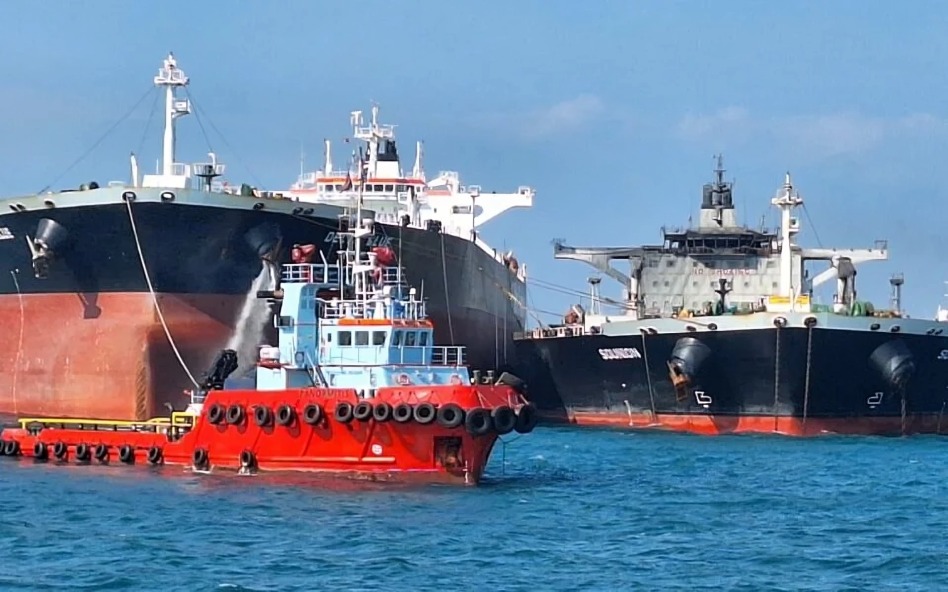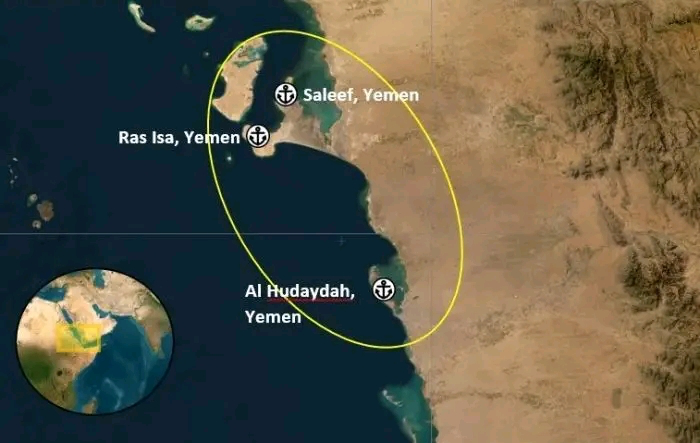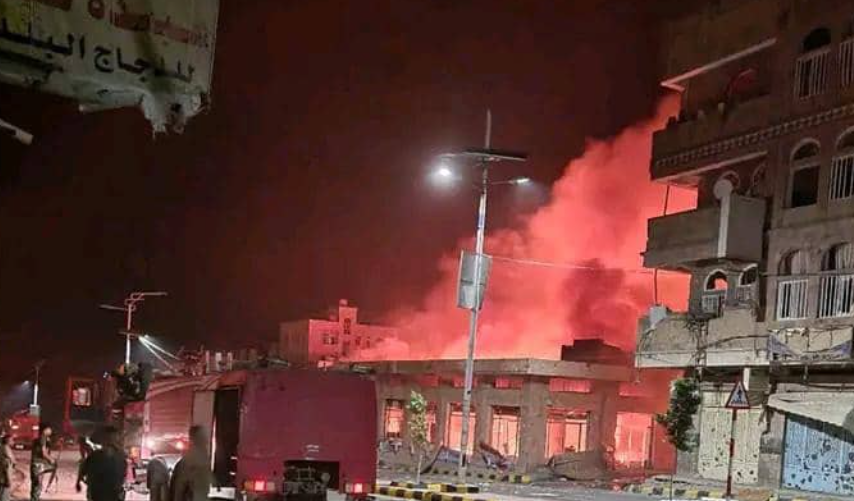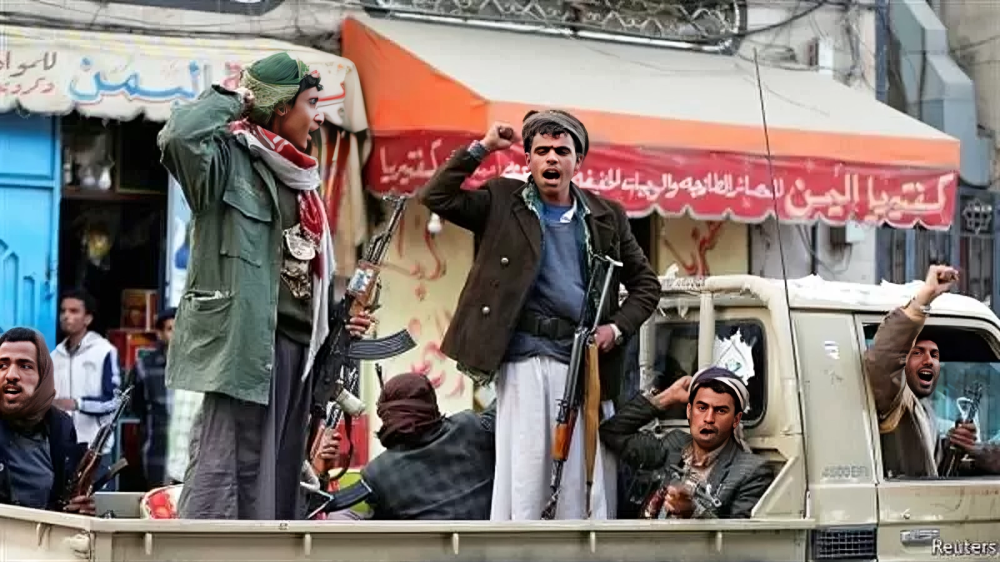
Barran Press
On Wednesday, December 4, 2024, the Greek news site Ekathimerini reported that approximately 150,000 tons of crude oil have been successfully transferred from the Greek tanker "Sounion" to the "Delta Blue" at the Port of Suez.
According to maritime sources cited in the report, the operation was supported by the Greek tugboat "Egean Pelagos." The tanker "Sounion" had previously been attacked by Houthi forces in the Red Sea on August 21, resulting in significant damage, power outages, and a fire on board.
The Greek site noted that efforts to retrieve the ship were initially halted due to safety concerns raised by the involved companies. Following the attack, the Houthis detonated additional explosives on the tanker, leading to further fires and prompting experts to warn that a spill from the "Sounion" could become one of the largest in recorded history, posing a serious environmental threat.
Captain Avilash Rawat of the tanker "Marlin Luanda" recounted his experience during the Houthi attack to BNN Bloomberg, stating that he had just finished dinner when a ship-targeting ballistic missile struck his vessel. He described the ship shaking violently, prompting him to run towards the bridge.
The incident occurred on the evening of January 26, when Rawat's 820-foot cargo ship was hit off the coast of Yemen, an area notorious for Houthi attacks. The ship sustained a hole approximately five square meters in size, and flames erupted on board. Rawat expressed uncertainty about whether another strike would follow.
The report highlighted that Rawat faced one of the most significant incidents in the Houthi campaign, which began late last year. The militants initially targeted vessels associated with Israel before expanding their operations to include boats linked to British and American interests.
Just this past weekend, U.S. Navy destroyers dealt with another wave of anti-ship ballistic missiles. While many ships now avoid this route by navigating around Africa, a significant number still pass along the Yemeni coast.
Rawat's comments underscore the dangers of navigating what has become some of the world's most perilous waters. Once a routine shortcut for maritime trade between Asia and Europe, the region is now largely avoided by reputable shipping companies.
Regarding the missile strike, Rawat noted it tore through the top of a cargo tank containing oil. The "Marlin Luanda" was carrying around 700,000 barrels of petroleum product, used for making gasoline and plastics. He warned that if the fire spread to nearby tanks, the entire ship could ignite.
After issuing a distress call, Rawat began maneuvering the vessel to direct the flames, which reached heights of "10-15 meters," toward a safer area. The crew fought the fire using an inert gas system and foam, but soon ran out of the latter and resorted to seawater for extinguishing.
The report detailed that Rawat was also aware that waters off Somalia are notorious for piracy, as his damaged ship headed towards the eastern African coastline. He was in contact with the company that hired the crew of the "Marlin Luanda" and the shipment's owner, commodity giant Trafigura Group, who suggested he abandon the ship, but he refused.
As the fire continued, the Indian Navy arrived at the scene and deployed a massive metal plate over the burning cargo tank, cutting off oxygen to the flames. More foam and seawater were used to extinguish the fire, which lasted nearly 20 hours. Rawat ended up staying awake for about 36 hours, preventing an environmental disaster and ensuring the safety of the ship and its cargo.
On December 2, Captain Rawat and the crew of the "Marlin Luanda" were awarded the Extraordinary Bravery at Sea Award by the International Maritime Organization, the global regulatory body for shipping.





